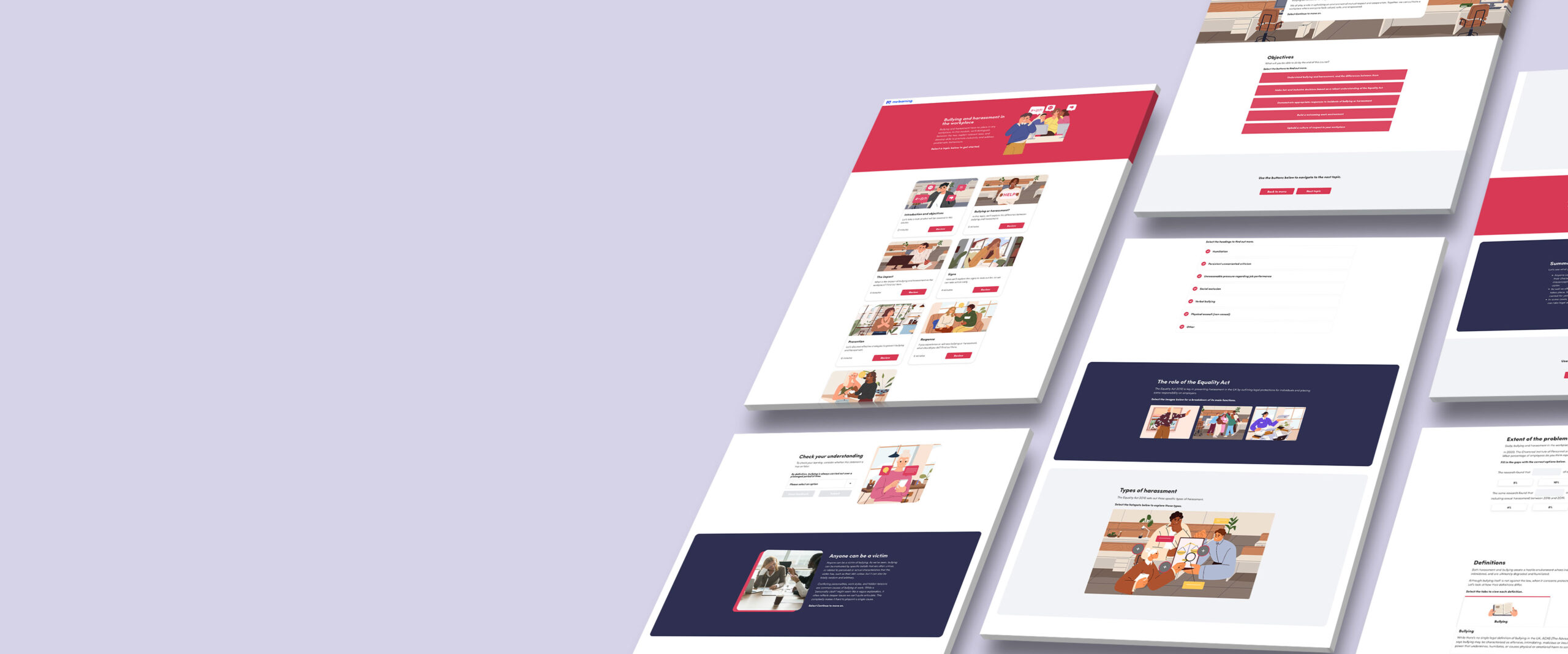Hate crime
£20.00 Excl. VATThis course will provide an awareness of what a hate crime and hate incident is and how prevalent hate crimes are.

Compliance courses written with and for the health and social care workforce, to protect those in care and accessing support services free from harm.
Showing 41–60 of 77 results

This course will provide an awareness of what a hate crime and hate incident is and how prevalent hate crimes are.

In the workplace, everyone has a responsibility to minimise risks to the health and safety of both themselves and others.
This 11 module course covers the elements you need to know to work safely in your health or social care role.

Parental substance misuse, mental ill-health and domestic abuse can all have a huge impact on a child’s safety and wellbeing. These hidden harms can threaten a child’s feeling of security and create challenging long-term problems.
This course will help you learn ways to reduce the likelihood of a child in your care suffering this hidden harm.

This course will explore self-neglect, safeguarding vulnerable adults and scams.

How much do you know about the issues of honour-based violence and forced marriage? This abuse is often used as a means of control, with the cycle beginning when victims are children and continuing into adult life.
One of the biggest problems is that if the victims are not getting the right support from the authorities then they may feel unable to make a complaint.

If you’re working with adults who may be ill or vulnerable to infection then you need to be particularly vigilant in infection control. But why is infection control important?
NICE (The National Institute for Health and Care Excellence) estimates that 300,000 patients a year in England acquire a healthcare-associated infection as a result of care within the NHS.
Infection control in hospitals and care homes is therefore critical: it harms patients who are already vulnerable and costs healthcare institutions too.

In healthcare, we are responsible for collecting, using, storing, processing and deciding the purpose of processing personal data.
As the amount of data collected, created and stored continues to increase, the need to protect it is even more important.

Responsible information sharing is key to delivering better and more efficient services; coordinated around the needs of children, young people and families. It’s especially important in light of new data privacy regulations.
In this information sharing training course you’ll learn about the sharing process and when to impart information; and visit some likely scenarios.

Keeping good records is an essential part of a structured and safe approach to working with vulnerable adults, children, young people and their families.
Good records management not only demonstrates the practical application of your knowledge and skills, it provides evidence of your work activity and helps keep those in your care safe.
This course gives good record keeping guidance for anyone working in social care.

Lead Professionals play a key role for children and their families, as the single point of contact for coordinating provision of a range of services.
Learn about the role of a lead professional and the importance of the Continuum of Need in this short, informative course.

According to the NHS, more than 1.08 billion prescription items were dispensed overall in 2015, a 1.8 per cent increase on the previous year.
Effectively managing and safely handling this medication is crucial to the health and wellbeing of those who rely on it on a daily basis.

Are you certain that the decisions you are making are in the best interests of the people in your care; especially when they are vulnerable? Are you up to speed on where the law stands regarding these decisions?
The Mental Capacity Act 2005 outlines the things you need to research, consider and assess before you make choices based on mental capacity.

The Mental Health Act is the main piece of legislation that outlines the assessments and rights of people with mental health issues. This course covers important aspects of the Mental Health Act, providing knowledge of the guiding principles underpinning mental health, and how to care for people who are going to be sectioned, have been sectioned, or are leaving hospital.

In this course, you’ll explore the difference between mental health and mental illness, common challenges people may face, and the impact these can have at work and in daily life. You’ll also learn practical ways to support yourself and others, challenge stigma, and understand when and how to seek professional help.

If you work in health and social care it’s important to have a good grounding in the key areas of mental health, dementia and learning disability. This course addresses each of these topics separately, along with presenting strategies that allow health professionals to help these individuals to live as they choose.

This course provides the learner with an understanding of Government Statutory Guidance on missing children protocol. It gives the learner the confidence to know what to do when a child or young person goes missing from care, what to do when they come back, and how to prevent repeat cases all the while supporting the child and their family.

Completion of this course ensures that staff are trained in up-to-date, relevant information when it comes to moving and positioning people.

Effective multi-agency working in health and social care depends on everyone concerned having a clear understanding of multi-agency initiatives (such as MASH and MARAC) and a good working knowledge of the legislation and guidance available.
If you’re working in a role that routinely demands multi-agency working, then this course will provide informative, useful guidance that will make your work easier.

NHS Continuing Healthcare (CHC) is the care package arranged by the NHS for people who aren’t in hospital and who have been determined to have a primary health need.
Eligible people can receive CHC in a variety of settings, including in their own home or a care home. A good care package can make the difference between a full and partial recovery.

Palliative care is a compassionate, patient-centred approach to alleviate suffering and enhance the quality of life for individuals with serious, life-limiting, or terminal illnesses.
End of content
End of content
Let us know what course you’re interested in and we’ll get in touch if it’s released!
We use cookies to ensure the best experience on our website. Find out more on our privacy and cookie policy.
Ensure your team is fully prepared with our CPD-accredited health and safety courses and compliance training, tailored specifically for the construction sector.
No products in the basket.